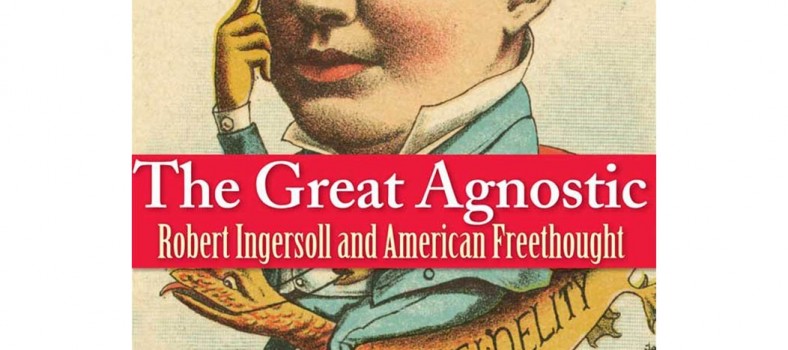

He called himself agnostic, but whenever he was asked, he replied that for him there was no difference between agnosticism and atheism. The second reason he isn’t remembered has to do with what was in those speeches, many of which denounced religion.

In an age when flowery language and effusive emotion were commonly used to keep audiences rapt, Ingersoll was comparatively calm and plain-spoken, yet he was said to be riveting, drawing both tears and peals of laughter. As a result, people were real connoisseurs of the craft, and a wide range of listeners thought Ingersoll was an extraordinary orator. In 19th-century America, speeches were a major form of entertainment. The first reason for his obscurity is the same reason many actors who were well known before the age of film have been forgotten: Ingersoll’s greatest fame came from his public speeches, and while the texts of these have been published, it was his performance of them that made him so beloved. A case in point is the orator Robert Green Ingersoll: a celebrity in his heyday at the end of the 19th century, he is almost utterly unknown today, even by those who would admire him if they knew more. Susan Jacoby, whose previous books include “Freethinkers” and “The Age of American Unreason,” begins “The Great Agnostic” by asking why some people famous in their own time become part of our national memory and others fade into oblivion.


 0 kommentar(er)
0 kommentar(er)
